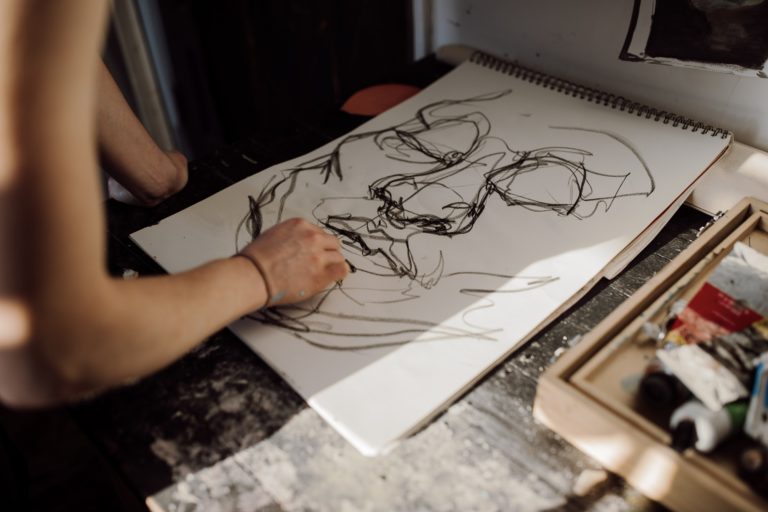“How do you do it?’ said night. ‘How do you wake and shine?’
‘I keep it simple,’ said light. ‘One day at a time.’”—Lemn Sissay, “Perceptions of the Pen.”
Mental health is a topic that many members of the current generation face. “The number of people screening with moderate to severe symptoms of depression and anxiety has continued to increase throughout 2020 and remains higher than rates prior to COVID-19,” Mental Health America reported. “Young people are struggling most with their mental health.”
Even before COVID-19, mental health was a serious problem for many young people. I have had many struggles with depression and anxiety in the past, and still deal with them in the present. The difference between now and then is the way in which I cope. Writing is a huge outlet for me on days when I feel like the world is pressing down on me a bit too much. Sometimes, when we don’t have the proper words to articulate how we feel, creative mediums can be our words instead. In other words, creative arts are an excellent source of comfort for people struggling with mental health.
Art has always been tied to humanity in some significant way. From the paintings found in caves to the Mona Lisa, even to the Highbridge graffiti. The National Library of Medicine said creativity serves as “a basis for human life” according to the theory of cognition. In other words, humans need some form of creativity in their lives to be happy; whether it be creating a TikTok, writing a novel, singing in a worship band, or something else entirely.
Author James Gurney said, “There is no high or low art; there is only art, and it comes in many forms.”
But why are the creative arts so important? Career coach Ashley Stahl told Forbes, “A creative act such as crafting can help focus the mind, and has even been compared to meditation due to its calming effects on the body.” Stahl elaborates, stating that these simple acts of art can produce dopamine and helps reduce anxiety, depression, and can even help you process trauma.
“Music helps fix what you can never describe,” Asbury sophomore Josie Pruitt, a pre-music therapy major, said. “People need to be aware and open to the idea of how music can heal a soul. Show tunes help me in particular because it goes deeper than surface level. They break down my walls and help me feel natural, God-given emotions.”
Stahl goes on. “Studies show that people who play instruments have better connectivity between their left and right brains,” she said. “When the two hemispheres of your brain communicate with each other, your cognitive function improves.”
In my own life, I rely on creative activities to help me process and clarify what it is that I am feeling. I started writing creatively in 8th grade, after a severe bout of depression that almost had serious consequences. Ever since, writing has been my go-to source of release. I write when I’m sad, I write when I’m angry, and I write when I feel like nothing is going my way. I also turn to poetry like the piece above and to authors like Emily Dickinson to calm myself down in moments where I really need it.
Further, you don’t even have to be considered “good” to enjoy something. As long as you enjoy what you’re doing and you’re doing it for yourself, then it doesn’t matter whether or not you’re as good as other people at it. The only thing that matters is if it helps you provide yourself with release.
“I’m terrible at dancing, but I thoroughly enjoy it,” Pruitt said. “Everybody has some sort of hidden talent that they love, that they may or may not be talented at. As long as they love it, that’s all that matters.”
One of the most poignant symbols for many who have struggled—or are struggling—with mental health is that of the simple semicolon. “A semicolon is used when an author could’ve chosen to end their sentence, but chose not to,” Project Semicolon said. “ The author is you and the sentence is your life.”
As much as the creative arts are a useful tool, there is no replacement for asking for help from those around you or a medical professional. If you or someone you know are struggling with suicidal thoughts, please contact the national suicide prevention hotline at 800-273-8255. Asbury’s Health and Wellness center is also open weekdays from 9:00-3:00.



